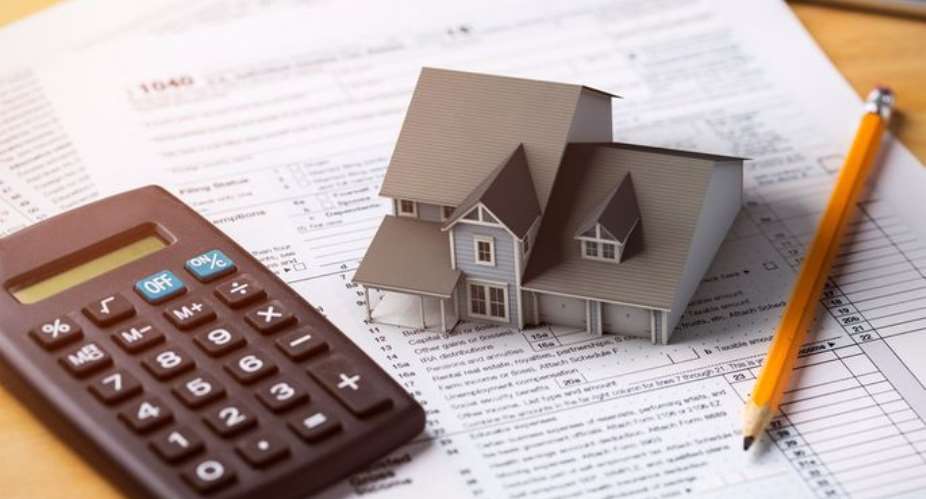Ghana's real estate sector, like many others in Africa, faces a complex landscape marked by macroeconomic challenges and global uncertainties.
According to the Real Estate Market Attractiveness Index, Ghana ranks among the least attractive countries for real estate investment in 2023. This low ranking is primarily attributed to heightened inflation, a lower GDP growth rate, and above-average construction costs.
Inflation Woes: Ghana's inflation rate, standing at 35.2%, is a significant deterrent for investors. High inflation erodes the purchasing power of the currency and introduces uncertainties into the market, affecting both local and international investors.
GDP Growth Concerns: The country's lower GDP growth rate contributes to its unattractive position. Economic growth is a vital factor in the real estate sector, influencing demand for both residential and commercial properties.
Construction Costs: Ghana's above-average construction costs, estimated at USD 1,700 per sqm, further dampen the attractiveness of its real estate market. Higher construction costs can limit development projects and impede the affordability of properties.
Comparative Analysis:
In contrast to Ghana, Botswana and Morocco stand out as the top-ranking countries in the Real Estate Market Attractiveness Index. Their strong performance is underpinned by relative currency stability, low inflation rates, and lower construction costs. For example, Botswana and Morocco boast inflation rates of 3.1% and 4.3%, respectively, and Morocco's construction costs per sqm are significantly lower than the continental average.
The Impact of Currency Changes:
The single most influential factor affecting Ghana's real estate market is currency depreciation. With the Ghanaian cedi facing an 83% decline in the year to December 2023, investors are understandably cautious. Such a significant depreciation not only raises concerns about economic stability but also affects the cost of imported construction materials, impacting overall project expenses.
Ghana's real estate sector is at a crossroads, facing challenges that require strategic interventions for recovery and growth. Tackling inflation, stimulating economic growth, and addressing construction cost issues are imperative for restoring investor confidence. Additionally, efforts to stabilize the currency and create a conducive business environment can contribute to revitalizing Ghana's real estate market. Despite the current challenges, there remain opportunities for innovative solutions and collaborative efforts to position Ghana as a more attractive destination for real estate investment in the future.
The writer is a journalist and a real estate content writer.





 Prince Harry, Meghan end Nigeria tour with Lagos visit
Prince Harry, Meghan end Nigeria tour with Lagos visit
 Presby Boys, Legon beat Prempeh College in Sharks Quiz
Presby Boys, Legon beat Prempeh College in Sharks Quiz
 CETAG members disapprove government’s approach to implementing NLC’s Compulsory ...
CETAG members disapprove government’s approach to implementing NLC’s Compulsory ...
 Voter registration: NPP's Richard Ahiagbah denies claims of double registration
Voter registration: NPP's Richard Ahiagbah denies claims of double registration
 Senegal buys back library of poet-president Léopold Senghor from France
Senegal buys back library of poet-president Léopold Senghor from France
 Ghana will lobby AU for intercontinental initiative on reparations – Akufo-Addo
Ghana will lobby AU for intercontinental initiative on reparations – Akufo-Addo
 Energy Commission warned gov't in 2023 about looming dumsor, issued advisory
Energy Commission warned gov't in 2023 about looming dumsor, issued advisory
 Dollarise Ghana’s economy to curb cedi depreciation — Dr Kwakye tells gov't
Dollarise Ghana’s economy to curb cedi depreciation — Dr Kwakye tells gov't
 NPP doesn't have flagbearer with Albion engine — Ken Kuranchie
NPP doesn't have flagbearer with Albion engine — Ken Kuranchie
 Afari Gyan is the most pragmatic EC Chair Ghana has had, Jean Mensa has failed a...
Afari Gyan is the most pragmatic EC Chair Ghana has had, Jean Mensa has failed a...
